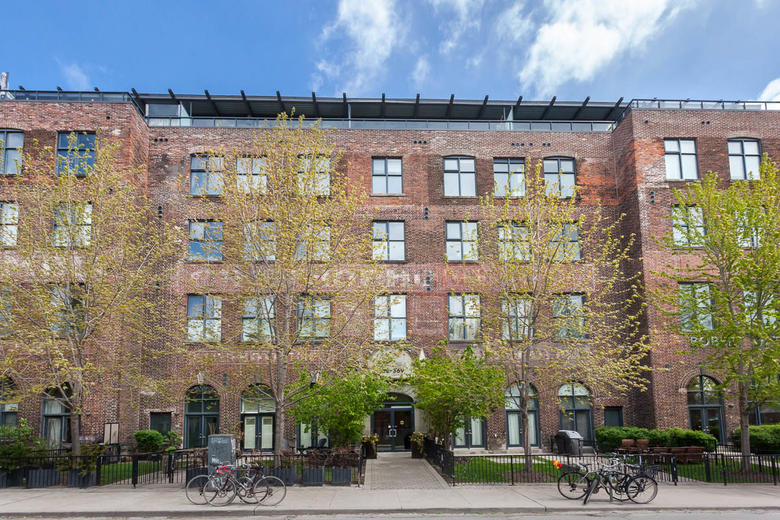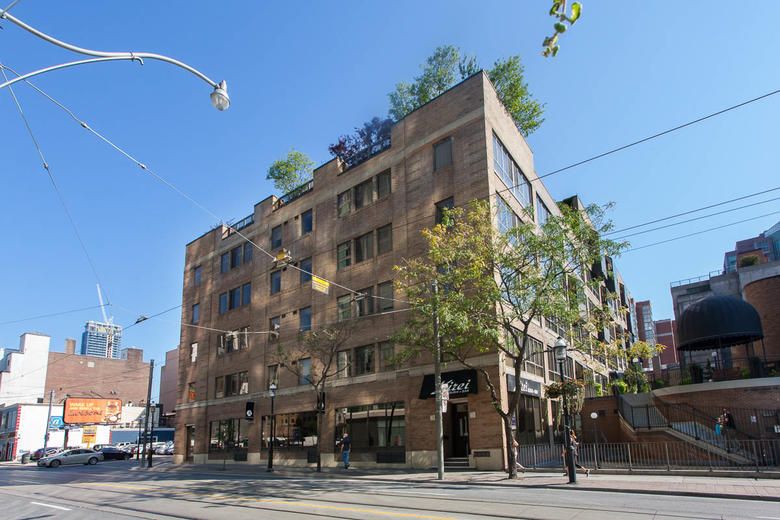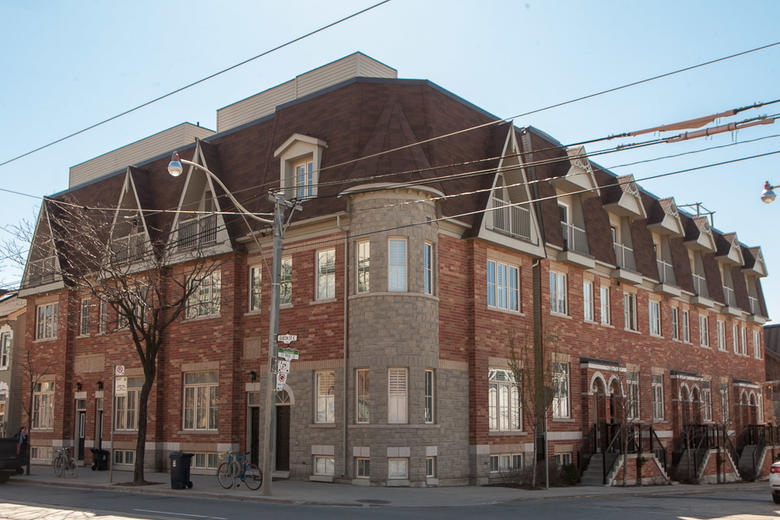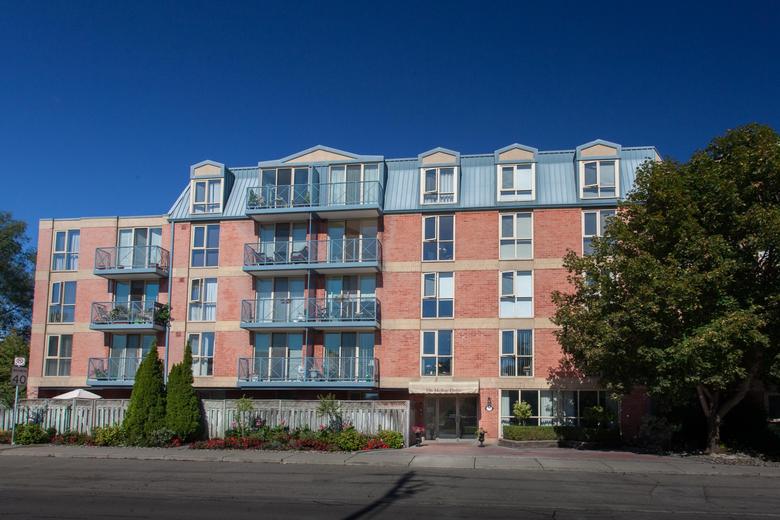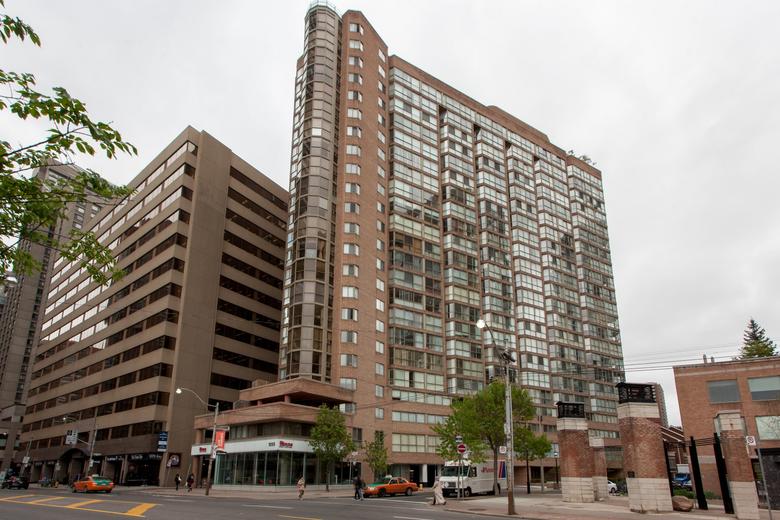- Should you buy a new or resale home?
- What exactly is a CONDO?
- How did the condo building craze come about?
- What exactly is a LOFT-style unit?
- How do I find a condo in Toronto?
- What type of home ownership is right for you?
- What are the ground rules for pet owners?
For more questions visit our Toronto Condominium FAQ here!
Should you buy a new or resale home?
There are advantages and disadvantages to buying both new and resale homes. Here are some of the characteristics that may help you make your choice.
New Home Advantages
- You may be able to upgrade or choose certain items such as siding, finish materials, flooring, cabinets, plumbing and electrical fixtures.
- The latest building code, electrical and energy-efficiency standards will apply. E A builder warranty is usually available in all provinces and the Yukon (but not the Northwest Territories). This can be important if a major system, such as plumbing or heating, breaks down.
- Unless you are a builder, warranties do not apply to homes you build yourself.
Resale Home Advantages
- It will probably be in an established neighbourhood.
- Landscaping is usually done and fencing installed.
- It may have upgrades such as a built-in swimming pool or finished basement.
- There is no GST unless the house has been renovated substantially, and then the tax is applied as if it were a new house.
New Home Disadvantages
- Neighbourhood amenities, like schools or shopping, may not be complete if the house is in a new development.
- There may be construction noise and traffic.
- There may be little to no landscaping or trees.
- The 7% GST applies to new housing. However, there is a rebate, to a maximum of 2.5%, on homes which cost less than $450,000.
Resale Home Disadvantages
- Maintenance costs will likely be higher than for a new house.
- You may require a professional home inspector to check for structural or other problems, such as a leaky basement or faulty roof.
- You may need to redecorate, or even renovate.
What exactly is a CONDO?
A condominium is not a type of house but a form of ownership. The owner has title to a single unit, as well as a share in the common elements such as elevators or surrounding land.
Condo Housing Types
- Row or townhouse
One of several single family homes joined by common walls. These can be condominium or freehold units. - Link
Houses, freehold or condominium, joined by garages or carports which provide access between the front and rear yards. Builders sometimes join basement walls so that link houses appear to be single family homes on small lots. - Highrise condominium
Multi-story residential building containing condominium units. A condominium is not a type of house but a form of ownership.
How did the condo building craze come about?
Two Neighbourhoods not long ago in decline--the King/Spadina area, west of the office towers, & the King/Parliament Neighbourhood on the east side of the busy downtown - are hot development prospects, where more than 4,000 residential units are under construction. Adjacent downtown neighbourhoods are also showing signs of the residential building craze.
- A major catalyst is a flexible system of planning regulations developed in 1996 that allows more residential development in areas traditionally zoned for light industrial and commercial use. The new "reinvestment" regulations stress more importance on the built form than the type of use.
- Changing demographics is another factor in the boom, for example, empty nesters, young professionals and suburbanites tired of long commutes into Toronto represent a sizable chunk of downtown condo buyers.
- Plus low interest rates and increased employment in the core.
What exactly is a LOFT-style unit?
A newer form of housing gaining popularity in the core is the loft-style unit, which is the the same legal style of ownership as a condominium.
Click here for a directory of Toronto Loft buildings
How do I find a condo in Toronto?
Many condos and loft-style units in every price bracket available!!
Finding a Condo or New Home to buy in Toronto has never been so easy!
Condos in Toronto, Loft Buildings: Toronto's Complete Guide
Comprehensive List of Builders & New Developments in Ontario
Find out what's making news in the new home and condo market.
Your New Home" Talk Show on CFRB AM 1010
What type of home ownership is right for you?
There are three broad categories of home ownership: freehold, condominium and cooperative.
Freehold Home:
Freehold homes offer the most privacy and freedom of choice of any other type of home. As owner of the entire structure and grounds, homeowners are free to decorate and renovate as they please. But with that freedom comes a lot of responsibility. All of the maintenance (indoors and out) is the sole responsibility of the owner, which can be costly in terms of both money and time. Freehold ownership is the most common type of home ownership.
Condominiums:
Condominiums are typically a less costly alternative to owning a detached house. With a condominium, you own, and are responsible for, the interior area of your unit (everything from the plaster in). Upkeep of the building and grounds is handled by the condominium association, which is funded by monthly fees collected from tenants. Condominiums often have strict rules regarding noise, use of common areas, renovations etc. Condo residents often enjoy less privacy than residents of detached homes.
Cooperatives:
Cooperatives (or co-ops) are comparable to condominiums, except instead of owning your unit, you own a percentage of shares in the entire building (or complex). As with condominium ownership, maintenance and repairs are paid for through the collection of monthly fees and you are subject to the rules and regulations of the co-op board. One drawback to living in a cooperative is that if you decide to sell your shares and move out, the co-op board has the right to reject your prospective buyer.
What are the ground rules for pet owners?
Some condominiums prohibit pets of any kind. Others may prohibit the number, type or size of pets. All condominiums have rules governing the keeping of pets which if broken can lead to an order for the permanent removal of the pet from the complex. If you have a pet make sure you understand what the rules are.
ENFORCEMENT
Condominium corporations that have a good set of rules and who apply them in a consistent and fair manner should have little difficulty enforcing them against those few owners who won't live up to the community's standards. In those cases where, as a last resort, it becomes necessary to take legal action condominiums can utilize s.49 of the Act which, among other things, allows the corporation to apply to a Judge for an order directing the nonconforming resident to comply with the rules.
The ability of condominiums to enforce their rules received a tremendous boost from the Ontario Court of Appeal when it rendered its decision on the case of York Condominium Corp. No. 383 v. Dvorchik, (1997). This case involved a highrise condominium that had a rule which prohibited pets in the building which weighed more than 25 pounds. The corporation had already successfully enforced this rule against an owner in 1988, and were understandably upset when in a 1992, decision another Judge refused to uphold it on the grounds that it was unreasonable. On appeal the corporation was successful in obtaining an order for the removal of the pet. What was so significant about this case were the strong statements made by the Court of Appeal in rendering their decision.
The Court of Appeal stated that, "...a court should not substitute its own opinion about the propriety of a rule enacted by a condominium board unless the rule is clearly unreasonable or contrary to the legislative scheme. In the absence of such unreasonableness, deference should be paid to rules deemed appropriate by the board charged with responsibility for balancing the private and communal interests of the owners. "
Court went on to state that, "...The threshold for overturning a board's rules reasonably made in the interests of unit owners is a high one..."
Opinion above courtesy of Ronald S. Danks of Simpson, Wigle Barristers and Solicitors)


